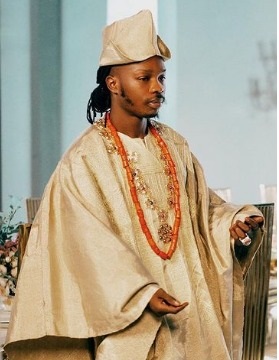
Nigerian musician Azeez Fashola, also known as Naira Marley.
On Monday, a Federal High Court in Lagos extended the adjournment for the ongoing trial of Nigerian musician Azeez Fashola, also known as Naira Marley, on charges of cybercrime until November 13 and 30.
Due to the defendant’s absence in court, Justice Nicholas Oweibo postponed the case. The News Agency of Nigeria (NAN) has reported that the Economic and Financial Crimes Commission (EFCC) is responsible for prosecuting the defendant on cybercrime-related charges.
The charges were brought by the anti-graft agency on May 14, 2019. Subsequently, Fashola, the artist behind the well-known song “Am I a yahoo boy,” was formally arraigned on May 20, 2019, before Justice Nicholas Oweibo. He entered a plea of not guilty.
Justice Oweibo granted him bail in the amount of two million naira, requiring two sureties of equal value. The trial has been in progress since then. On October 6, due to the defendant’s non-appearance during the last court date, Justice Oweibo issued a warrant for his production.
Oweibo’s directive came in response to a request for a production warrant made by the prosecution, Bilikisu Buhari. It’s worth noting that the police in Lagos had detained Naira Marley and his associate, Sam Larry, in connection with the death of Nigerian artiste Oladimeji Aloba, widely recognized as “Mohbad.”
During the court session on Monday, Olalekan Ojo (SAN) notified the court that, despite the court’s previous order for his presence, the defendant remains conspicuously absent from his trial. In reply, the prosecutor conveyed to the court that she had indeed sought a production warrant for the defendant, yet he continues to be absent.
“My lord, at the last adjourned date, we prayed for a production warrant and the court granted same, however, the defendant is still not produced.
“We pray for a further date in order to follow up with the police,” she said.
As a result, the court postponed the case for the continuation of the trial on November 13 and 30. According to the EFCC, the defendant allegedly committed these offenses on various dates, spanning from November 26, 2018, to December 11, 2018, as well as May 10, 2019.
The commission has claimed that Fashola and his associates collaborated in a scheme involving the illicit use of multiple Access Bank ATM cards to deceive their victims.
Furthermore, it alleges that the defendant attempted to gain ill-gotten financial benefits by using a bank-issued credit card that did not belong to him.
Additionally, the EFCC asserts that the defendant was found in possession of counterfeit credit cards registered under various individuals’ names, demonstrating an intention to commit fraud, thereby constituting theft.
These alleged actions are in violation of the provisions outlined in Sections 1, 23(1)(b), 27(1), and 33(9) of the Cyber Crime (Prohibition) Prevention Act of 2015.

